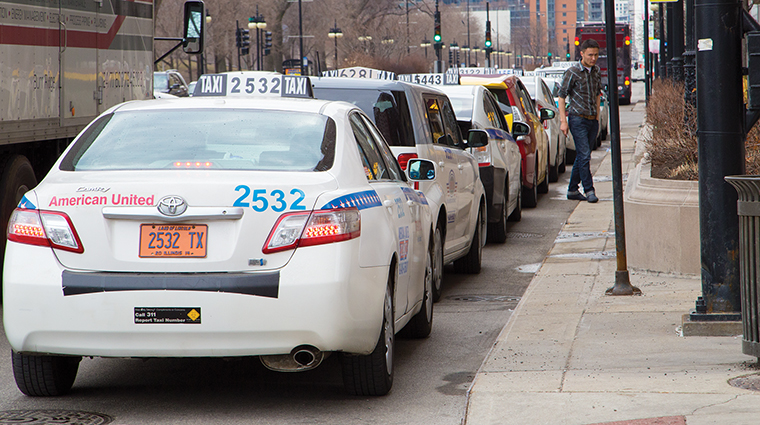Cabbies demand fare hike
Chicago cab drivers pay a maximum of $700 a week to lease a taxi from a cab company. A Chicago cab driver filed a lawsuit in 2012 demanding the city lower lease rates because it prevents drivers from making a livable wage.
April 14, 2014
As the controversy surrounding rideshare companies heats up, Chicago taxi drivers are revisiting a 2012 lawsuit demanding a fare hike.
Dozens of taxi drivers gathered outside the chambers of City Hall April 2 to demand increased cab fares because city-imposed regulations prevent them from earning a livable wage, said Melissa Callahan, leader of Cab Drivers for Justice and a taxi driver.
“Politicians are trying to champion this minimum wage issue, but they are ignoring people that they are already aware are not making the minimum wage,” Callahan said.
Callahan filed a lawsuit against the city in January 2012, claiming that leasing from a cab company is so costly that drivers are unable to make a livable wage. Although the city is responsible for setting the meter rate, it does not monitor cab drivers’ earnings because they are considered private contractors, not city employees, according to the city’s Dec. 20 motion to dismiss the lawsuit.
Because taxi companies are private businesses, the Department of Business Affairs & Consumer Protection regulates them, meaning it is responsible for ensuring that companies at least pay their drivers minimum wage.
BACP spokeswoman Mika Stambaugh declined to comment on the pending lawsuit.
Callahan said because the city controls taxi drivers’ earning potential, the drivers should be considered city employees to ensure they earn the minimum wage.
According to a 2008 study titled “Driven to Poverty: A Comprehensive Study of the Taxicab Industry,” conducted by Robert Bruno, professor of Labor & Employment Relations at the University of Illinois at Urbana-Champaign, the typical cabbie drives more than eight hours a day on average and earns about $4.81 per hour after maintenance fees, fuel costs and the cost of leasing a cab.
“I jump in and out of a cab and I didn’t know a great deal about the industry,” Bruno said. “I was startled by the length of time [drivers] have to work.”
Thaddeus Budzynski, a Chicago cab driver of 26 years, said he works an average of 11 hours a day to earn a profit. He said he spends at least eight hours a day behind the wheel so he can afford his weekly $700 lease, which is in line with industry standards. According to city regulations, the maximum weekly lease rate is $707 for seven consecutive 24-hour shifts. The maximum rate to lease a cab for 12 hours is $72 a day.
Callahan said a fare increase is not intended to punish the public, acknowledging the competition the industry faces with rideshare companies such as Uber and Lyft charging less than the standard cab fare.
An ordinance to regulate rideshare companies was introduced to the City Council on Feb. 5. It would require companies to pay an annual $25,000 fee plus $25 per driver to obtain a license, as reported Feb. 17 by The Chronicle. Conversely, cab companies must pay a minimum of $300,000 to purchase one taxi medallion. The city’s nearly 7,000 taxi drivers pay more than $24 million annually in fees and taxes.
Callahan said proposed rideshare restrictions should impose the same regulations cab drivers face. She said she understands such regulations would likely cause ridership companies to increase customer costs, but taxi drivers are suffering because they cannot compete with rideshare companies’ low fare costs.
She added that if the city were to require taxi companies to decrease the cost to lease a cab, drivers would not need a fare hike.
“We know how difficult it is right now to earn a living for things like transportation [services],” Callahan said. “This case is about making sure that behind the scenes we get a fair shake with everything that goes on that the public doesn’t see and that things are done fairly.”








